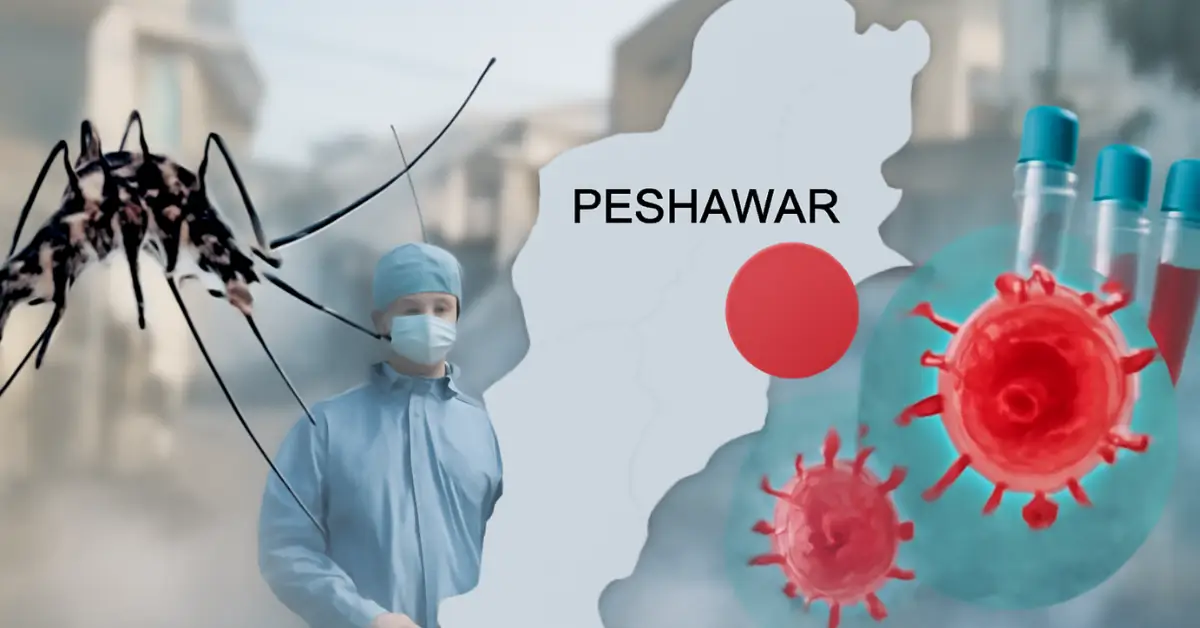Chikungunya Outbreak
In recent days, Peshawar has been grappling with a chikungunya outbreak, with 16 confirmed cases of the viral disease reported in the Safida Dheri area. The local health department has swiftly acted to control the situation by setting up a control room, launching an epidemiological investigation, and initiating vector control measures. Here’s a closer look at how the outbreak was detected, the steps taken to mitigate its spread, and how the public is being urged to stay safe.
Overview of the Chikungunya Outbreak in Safid Dheri
The first signs of the chikungunya outbreak in Peshawar emerged when several people in Safid Dheri began experiencing fever-like symptoms. Given the similarity of these symptoms to those of chikungunya, health authorities quickly sprang into action. A health team was dispatched to the area to collect samples from 21 individuals who were showing signs of fever.
These samples were then sent to the Public Health Reference Lab in Khyber Pakhtunkhwa for testing. After a thorough analysis, it was confirmed that 16 of the samples tested positive for chikungunya. This confirmation marked the official beginning of the outbreak, prompting immediate and coordinated efforts by local health authorities to contain and prevent further spread of the disease.
Benazir Income Support Programme Resolves Biometric Glitch, 8171 Payments Resume Smoothly
Response by the Health Department
Secretary of Health Shahidullah Khan addressed the situation, acknowledging the seriousness of the outbreak. He assured the public that every possible measure was being taken to control the spread of chikungunya and protect the health of the community.
To ensure that the outbreak is effectively managed, the Peshawar Health Department took several key actions:
- Setting up a Control Room: A control room has been established at the District Health Officer (DHO) Peshawar’s office. This control room will serve as the central hub for coordinating the response, monitoring the situation, and communicating with relevant health teams.
- Issuance of an Advisory: An advisory was promptly sent to the DHO Peshawar to ensure that timely actions are implemented in the affected areas. This advisory includes guidelines for healthcare providers, as well as public health recommendations.
These proactive steps show that the health department is taking every necessary action to contain the outbreak and prevent further cases.
Epidemiological Investigation and Vector Control Measures
One of the first steps in controlling the chikungunya outbreak is understanding how the disease is spreading. To this end, an epidemiological investigation has been launched in the Safid Dheri area. This investigation will help identify the source of the infection, how the virus is being transmitted, and whether there are additional at-risk areas in Peshawar.
In addition to the investigation, vector control measures are being actively implemented. Chikungunya is primarily spread by mosquitoes, particularly the Aedes aegypti mosquito. To reduce the risk of further transmission, the health department has initiated several measures:
- Fogging: This process involves spraying insecticides in affected areas to kill adult mosquitoes that may be carrying the virus.
- Larviciding: The health department is also targeting mosquito larvae by applying larvicides to prevent the breeding of mosquitoes in stagnant water sources.
Both fogging and larviciding are essential tools in reducing mosquito populations and preventing further outbreaks of chikungunya.
BISP 8171 Online Portal 2025: Step-by-Step CNIC Check, Eligibility Status & Payment Tracking Guide
Public Health Advisory and Safety Measures
As part of its ongoing response, the Peshawar Health Department has issued a public health advisory aimed at preventing the spread of chikungunya. The advisory includes the following important guidelines:
- Avoid Unnecessary Movement: People living in the affected areas are advised to stay indoors and avoid unnecessary travel. This helps minimize exposure to mosquito bites and reduces the chance of spreading the virus to other areas.
- Mosquito Prevention: Residents are urged to take measures to protect themselves from mosquito bites, such as using mosquito nets, wearing long-sleeved clothing, and applying insect repellent.
- Community Cooperation: The health department has called on the public to cooperate by eliminating potential mosquito breeding sites, such as standing water in containers, and reporting any suspected cases of fever to health authorities.
By following these precautions, individuals can play an active role in curbing the spread of the virus.
Conclusion
The chikungunya outbreak in Safid Dheri, Peshawar, is a serious public health concern, but the local health authorities are acting swiftly to mitigate the situation. From the confirmation of 16 cases to the establishment of a control room, the health department is committed to controlling the outbreak and preventing further cases.
Through a combination of epidemiological investigations, vector control measures like fogging and larviciding, and public health advisories, the risk of further spread is being addressed. However, community participation is crucial. Residents must follow safety guidelines to protect themselves and help prevent the outbreak from spreading to other areas.
As we navigate this outbreak, it is important for everyone to stay informed, follow official advisories, and practice mosquito prevention. With coordinated efforts from the health department and the cooperation of the public, Peshawar can control the chikungunya outbreak and return to a state of health and safety.
Pakistan Govt Increases House Rent Allowance by 85% for Federal Staff – Full Details Inside

